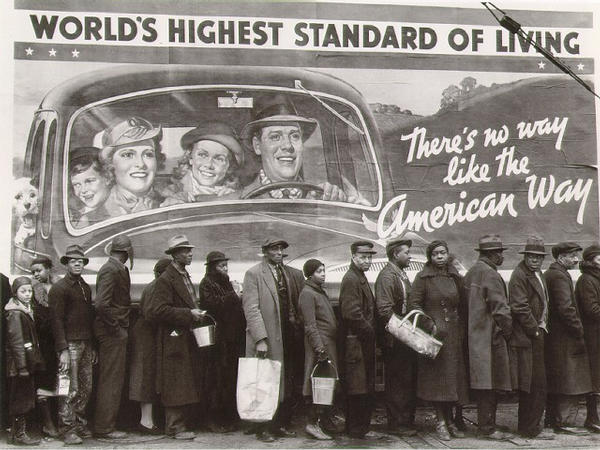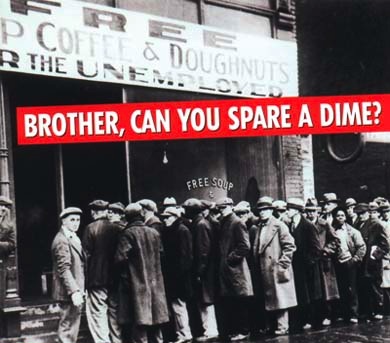Posted on November 5th, 2008 at 4:30 pm by Steve
The political battles to come – which will have an enormous impact on our lives and the lives of people around the world – will not be easy. Having a president in the White House who is demonstrably intelligent and reasonable could be a good thing.
But let’s not pretend that, because Barack Obama has been elected, our battles are won.
For instance: today, flush with the glow of yesterday’s victory, Obama announced that he’s chosen the execrable Rahm Emanuel to be his Chief of Staff. This is the same man who, as the head of the Democratic Congressional Campaign Committee, fought tooth and nail to exclude, marginalize, and demonize anti-war Democrats in the 2006 primary races. He withdrew national Democratic support from a progressive Congressional candidate and recruited opponents to defeat her in the primary. Emanuel has, time and time again, shown himself to be firmly allied with the “centrist” (read: “Republican”) wing of the Democratic party, personified by the Democratic Leadership Council. (See this Truthout special for more on Emanuel’s role in recruiting conservatives in the 2006 campaign.)
Rahm Emanuel is the opposite of someone like Howard Dean. After Dean lost his bid to be the Democratic nominee in 2004, he undertook another, far more unusual campaign – he campaigned to be the chair of the Democratic National Committee (DNC). What’s unusual about this is that the DNC chair is usually chosen by party insiders in Washington, who present their choice to the state parties as a fait accompli. Dean fought for the votes of the state party leaders, and when it was clear he had enough support, the other candidates withdrew, and Dean won the chairmanship (much to the chagrin of Rahm Emanuel, Nancy Pelosi, and Harry Reid, incidentally).
What Dean did next is stunning: he set out to devolve the DNC’s power to its state party organizations. He believed that the best decisions are made by people who are close to the issues that matter to voters. He also believed that Democrats need to compete in every county across the country. His emphasis on rebuilding (or, in some cases, building) viable state Democratic party organizations laid the groundwork for Obama’s successful use of Dean’s “fifty-state strategy” in this election.
Here’s what Rahm Emanuel said to Howard Dean about Dean’s strategy:
“You’re nowhere, Howard. Your field plan is not a field plan. That’s fucking bullshit … I know your field plan – it doesn’t exist. I’ve gone around the country with these races. I’ve seen your people. There is no plan, Howard.”
Howard Dean is smart, compassionate, and effective. I haven’t seen his name mentioned as a possible Cabinet appointee in the Obama administration, incidentally.
In Rahm Emanuel’s defense, he and Obama have been friends since their early days in Chicago together. And, since Emanuel served in the Clinton White House, he can be a bridge to the Clinton wing of the party. And, further, many times someone can sublimate his own opinions in the service of his boss. Nonetheless, the selection of this pro-war, anti-grassroots, former-Investment-Banker as Obama’s chief of staff is a clear signal that we’ll have to keep the pressure up throughout Obama’s term of office if we want to see real, progressive change.
Another crystal-clear signal of this sort are the reports that Obama will likely name Lawrence Summers to be Treasury Secretary. Larry Motherfucking Summers is the guy who signed a 1991 memo, when he was Chief Economist of the World Bank, asserting that “the economic logic behind dumping a load of toxic waste in the lowest wage country is impeccable and we should face up to that.”
Larry Summers was Clinton’s Treasury Secretary from 1999 until the end of his term. He lobbied the Congress to repeal the Glass-Steagall Financial Services Act, which the Congress ultimately did – leading rather directly to the current financial disaster we’re witnessing. Here’s an excerpt from the 1999 New York Times article describing Clinton’s signing of the Gramm-Leach-Billey Act:
“With this bill,” Treasury Secretary Lawrence H. Summers said, “the American financial system takes a major step forward toward the 21st Century — one that will benefit American consumers, business and the national economy.” Opponents said it would have the opposite effect, creating behemoths that will raise fees, violate customers’ privacy by sharing and selling their personal data, and put the stability of the financial system at risk.
This is the same Larry Summers who announced that efforts by faculty at MIT and Harvard to force their institutions to divest from Israel, due to Israel’s ongoing occupation and subjugation of Palestinian territory, were “Anti-semitic in effect, if not in intent.” The same Larry Summers who drove the African American scholar Cornel West out of Harvard by accusing him of being unserious and contributing to grade inflation. The same Larry Summers who, while President of Harvard, asserted that perhaps the lack of women in top science, engineering, and math jobs was due to their innate lack of ability in those fields.
Obama’s choices of advisers and Cabinet members says a lot about how he’ll govern. The early signs are not very hopeful, at least for those of us who aren’t DLC “centrists.”
Any progressive change that comes out of an Obama administration is going to happen because we organize and fight for it every step of the way. The effort to get real change enacted is going to need the same organization, the same energy, and the same stamina as the effort that put Obama in the White House. And this time, we’re going to have to do it without Obama’s national and local organizations, without the support of the Democratic party, and – crucially – without their hundreds of millions of dollars.
We’ve only just begun…






